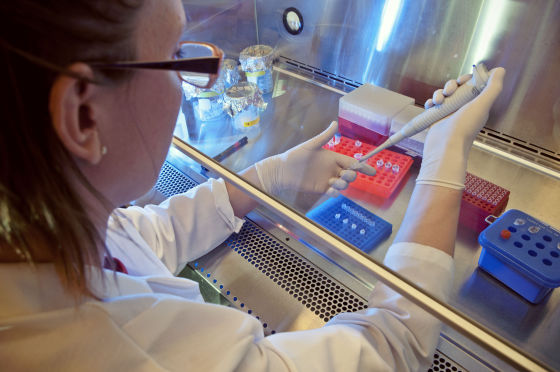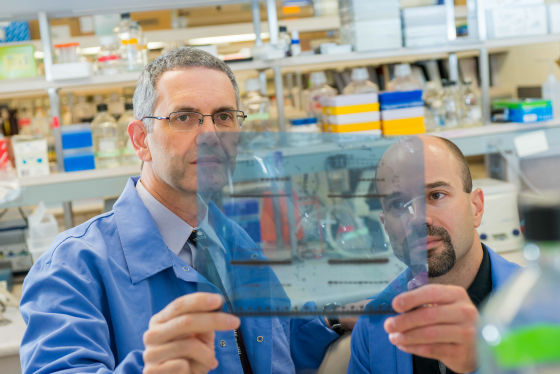It is possible to return cancer cells to the original benign cells Clearly the results of the study are revealed

ByCrafty_dame
Cancer is commonly known as a disorder that is difficult to recover and therapy that places a heavy burden on patients such as surgical treatment and anticancer drug treatment is applied, but research on Mayo Clinic Hospital in the USA The group succeeded in experiments of returning cancer cells to the original benign cells and has attracted considerable attention as a new cancer treatment method.
Distinct E-cadherin-based complexes regulate cell behavior through miRNA processing or Src and p 120 catenin activity: Nature Cell Biology: Nature Publishing Group
http://www.nature.com/ncb/journal/vaop/ncurrent/full/ncb3227.html
Mayo Clinic researchers find new code that makes reprogrammi [...] | Mayo Clinic News Network
http://newsnetwork.mayoclinic.org/discussion/mayo-clinic-researchers-find-new-code-that-makes-reprogramming-of-cancer-cells-possible/
Cancer cells programmed back to normal by US scientists - Telegraph
http://www.telegraph.co.uk/news/science/science-news/11821334/Cancer-cells-programmed-back-to-normal-by-US-scientists.html
Cells of normal cells can be attached to each other thanks to substances called adhesion proteins and it has long been thought that this adhesion protein is also an essential cancer suppressor for epithelial tissue formation. However, researchers at Mayo Clinic disputed this theory, arguing the theory that adhesion proteins are also present in cancer cells and are necessary elements for cancer cell growth. There is a possibility that the adhesion protein has conflicting two aspects of "cancer suppression factor" and "necessary for cancer cell growth".

ByUniversity of Michigan School of Natural Resources & Environment
Therefore, when the research group conducted an experiment, it was found that adhesion protein was present in the cancer cells, and it was found that when abnormality occurs in the adhesion protein, the cancer cells grow at a speed deviating from ordinary. It was proved that the theory claimed by the research group was correct.
Another important thing has been found in this experiment. That is the interaction between molecules "adhesion protein" and "microRNA". When ordinary cells come into contact with each other, microRNA acts to stop the movement of genes that promote the growth of cells, but if abnormality occurs in the adhesion protein in cancer cells, abnormality also occurs in microRNA I understood.
In addition, the researcher group continued the experiment, and destruction of ordinary microRNA in the cell prevented generation of protein called PLEKHA7 which cleaves the cell binding, and it turned out that the cell repeatedly proliferated to cancer cells . In addition, reversing the process, that is, repairing microRNAs in cancer cells to normal levels, confirmed that cancer growth did not stop but growth declined and returned to the original cells. Briefly, by restoring the function (microRNA) that prevents excessive proliferation and critical growth of cells, it was possible to stop the growth of cancer cells and return it to the original cells.
Dr. Antonis Kourtidis, who led the experiment, said, "By knowing that there are interactions between distinct adhesion proteins and microRNAs through a series of experiments, it may be a sign of future cancer treatment." I will. However, cancer cells returned to their original benign cells only in acute breast cancer, lung cancer, bladder cancer. The research group embraces hope that "a future where cancer treatment can be done without requiring severe chemotherapy or surgery may come".

In Japan, a research group at Tottori University School of Medicine will be able to return microRNA to undifferentiated cancer with high malignancy in 2014, it can be returned to normal cellsDiscovered for the first time in the worldDid. However, since the experiment conducted by Tottori University School of Medicine in Japan was using a mouse, it is expected that future experiments will prove efficacy to humans.
Related Posts:
in Science, Posted by darkhorse_log







